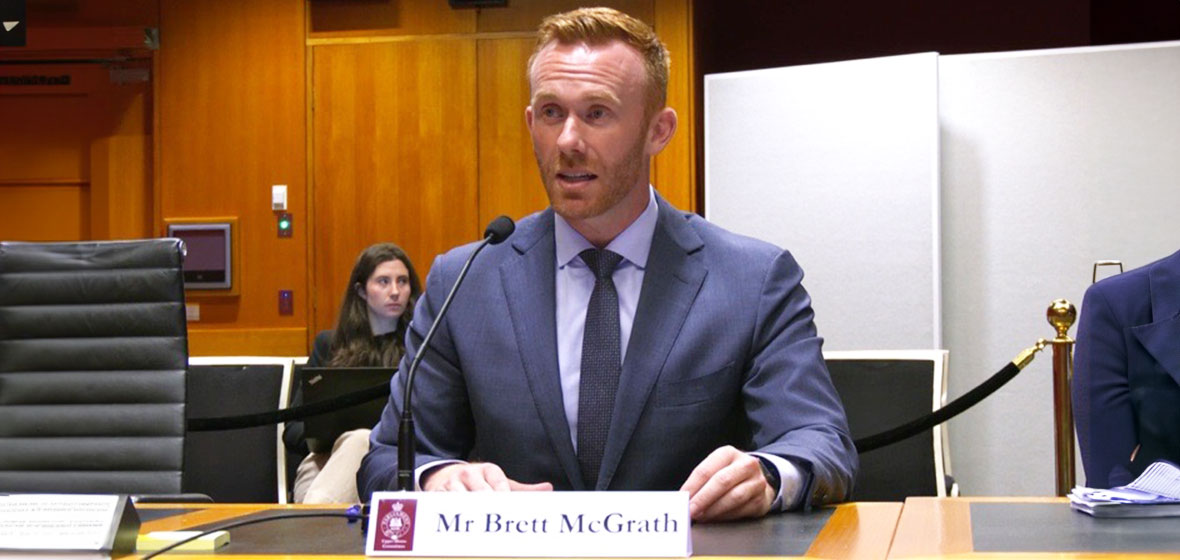It is transforming the landscapes of many industries, including law. Artificial Intelligence (AI) can no longer be dismissed as science fiction, it’s a reality. As its influence grows, it is essential that solicitors are equipped with the knowledge and skills necessary to harness its potential, responsibly and ethically.
Law Society of NSW President Brett McGrath has made AI and its impact on the legal profession a key focus of his presidency and has taken a proactive approach to prepare the legal profession for the challenges and opportunities presented by this emerging technology. This includes the formation of an AI taskforce.
In his opening of law term speech, McGrath envisioned that the taskforce would be “central to the Law Society’s commitment to supporting the entire profession as it adapts to technological and innovative advancements that shape the justice system and the way legal services are delivered.”
Education is key, and the taskforce, comprising legal and technology experts, aims to provide guidance to solicitors on navigating the complexities of AI and to advise the government on regulatory frameworks.
In March, McGrath urged the NSW government to “build upon and adapt existing approaches that are emerging both in Australian and international jurisdictions and seek consistency with respect to privacy, cyber-security, consumer rights and human rights law.”

However, integrating AI into law firms poses many ethical challenges. Concerns about data security, privacy, and potential biases in AI algorithms must be addressed. So how can law firms prepare themselves?
The need for interdisciplinary teams
Allan McCay, Deputy Director of the Sydney Institute of Criminology and a taskforce member, says law firms face two major challenges in the face of rapid technological development: staying informed about emerging trends and acquiring the necessary interdisciplinary expertise.
McCay’s personal experience in neurotechnology and law demonstrates the importance of collaborating with experts from diverse fields such as AI, biomedical engineering, neuroscience, and venture capital, to fully grasp the legal implications. These collaborations help identify key issues and ensure an accurate understanding of complex technical and scientific concepts. He believes that law firms should adopt this approach as well.
“Even if I am not collaborating, and am writing as a sole author, I often have to speak to one or more of these people to ensure I haven’t misunderstood the science, technology or commercial environment… these collaborations help me to understand what the important issues are,” McCay says.
The development of technologies like Neuralink’s brain-computer interface highlights the need for interdisciplinary teams with expertise in both life sciences and technology. This trend extends beyond neurotechnology, as AI increasingly intersects with fields like synthetic biology, requiring lawyers to advise clients working at the interface of multiple disciplines.
While there is concern about generative AI potentially replacing the training ground for junior lawyers, McCay says these younger professionals who have recently studied technical and scientific fields can actually be valuable assets in building interdisciplinary teams. Additionally, law firms might need to recruit senior staff with up-to-date knowledge in other domains like biology, similar to how they currently seek out individuals with expertise in tech-related fields.
However, the growing need for interdisciplinary expertise favours larger firms with the resources to assemble diverse teams. What about those practising in smaller firms?
To stay ahead of the curve, he suggests law firms actively monitor diverse sources of information on technological trends and designate individuals responsible for evaluating and implementing changes based on these trends. This may require a shift in continuing professional development (CPD)towards a more tech-focused and proactive approach that can inform strategic decisions and attract new clients.

Improving efficiency and access to justice
While many believe AI could be leveraged to improve efficiency and access to justice in the legal system, its implementation requires careful consideration.
McCay is convinced that AI can contribute to efficiency and access to justice and be disruptive for the legal profession but says there are legal tasks that might be more difficult for non-conscious machines: the handling of incommensurability, which refers to the difficulty of comparing values that lack a common unit of measurement.
He gives the example of sentencing in criminal law where judges must weigh the offender’s moral culpability against concerns for community protection. However, he says that these two factors are fundamentally different, much like comparing “apples and oranges”.
“How many units of moral culpability is worth a unit of community protection? … there is no common metric from which to algorithmically respond to this question within AI’s quantitative paradigm,” McCay says.
While tech companies may attempt to address this issue by assigning numerical values to incommensurable factors and replicating human decision-making patterns, McCay says human judgment is still crucial for nuanced decision-making, especially in novel situations that deviate from previous cases.
“I don’t say that this is the only advantage human lawyers might have – just that it could be one and perhaps the issue of incommensurability is not sufficiently addressed in considerations of the future of legal work and the future of work more generally,” McCay says.
The challenge of incommensurability extends beyond sentencing and has broader implications for the potential automation of various legal tasks. While this highlights a fundamental limitation of AI systems in the legal field, the technology’s significant impact is undeniable. It’s no longer a question of whether AI will be implemented, but when?
The Law Society’s taskforce is in its infancy, but the work that is being done in the background reflects its commitment to supporting solicitors in adapting to a rapidly changing legal landscape. By empowering lawyers with the knowledge and tools to harness AI effectively and ethically, the Law Society aims to ensure that the legal profession remains at the forefront of innovation while upholding its core values of professionalism, integrity, and service to the community.
Allan McCay is Deputy Director of The Sydney Institute of Criminology and an Academic Fellow at the University of Sydney Law School. He is President of the Institute of Neurotechnology and Law and a member of the Law Society of NSW’s Taskforce on AI & other tools and trends shaping the legal profession.




